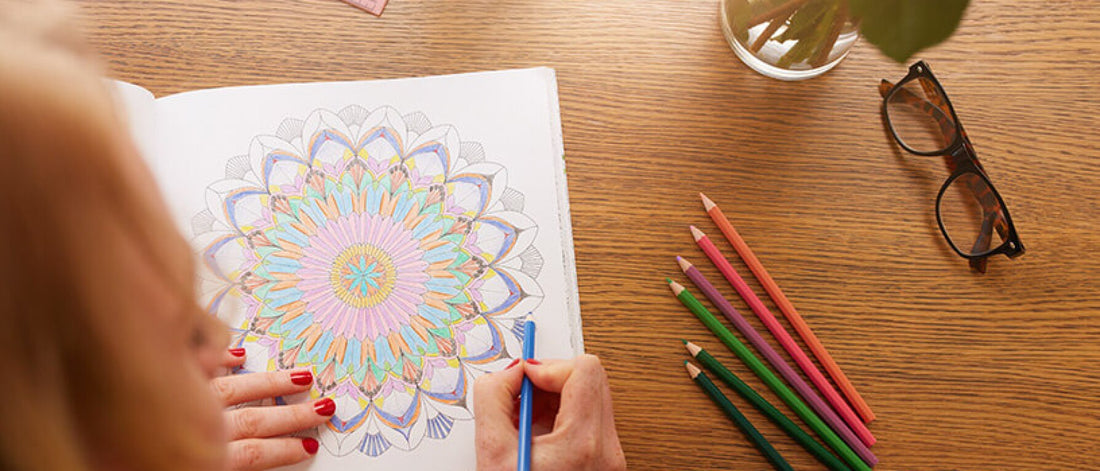Alone time.
Some people are terrified of it, while others can’t function without it. Regardless of which category you fall under, incorporating some quality “me-time” into your busy schedule can have plenty of benefits.
And now is a good time to take advantage of all that alone time has to offer. In a world where you are constantly connected, either via text or social media, it can feel a bit foreign to be without the presence of others. Many feel “lost” without their cell phones or disconnected when they go days without checking Facebook. While this increased sense of connection has its benefits, it has also overshadowed the importance of alone time.
It is important to note the difference between alone time—a period of time you choose to spend by yourself—and loneliness, a sense of sadness triggered by feelings of isolation. Loneliness carries health risks, including:
Fortunately, it is possible and beneficial to be alone without feeling lonely. Here are four reasons to embrace alone time:
Making time for a little solitude is essential, whether it’s going to a movie by yourself or living alone, it is a need that has increased over time. According to a 2014 article published in the Washington Post, more Americans are living alone than ever before, with a rate of single-person households rising from about 5 percent in the 1920s to 27 percent in 2013.
While not everyone will experience living alone, there are still many ways to enjoy alone time. Try these suggestions:
Hint: Think back to an activity you enjoyed during your childhood—a time perhaps when it was easier to entertain yourself.
Tip: If you find it difficult to part from your phone, schedule a time during the day specifically for surfing the web, checking social media, and responding to emails.
Even if you’re not a loner, once you get used to spending time by yourself, you’ll treasure that alone time and even look forward to it.
Celebrate the greatest relationship you will ever have—the one with yourself. Take a six-day pause to just be in the greatness of you at our Perfect Health program. Learn More.
Some people are terrified of it, while others can’t function without it. Regardless of which category you fall under, incorporating some quality “me-time” into your busy schedule can have plenty of benefits.
And now is a good time to take advantage of all that alone time has to offer. In a world where you are constantly connected, either via text or social media, it can feel a bit foreign to be without the presence of others. Many feel “lost” without their cell phones or disconnected when they go days without checking Facebook. While this increased sense of connection has its benefits, it has also overshadowed the importance of alone time.
It is important to note the difference between alone time—a period of time you choose to spend by yourself—and loneliness, a sense of sadness triggered by feelings of isolation. Loneliness carries health risks, including:
- Weakened immune system
- Increased depression
- Higher risk of heart disease
Fortunately, it is possible and beneficial to be alone without feeling lonely. Here are four reasons to embrace alone time:
1. Enhance Creativity
Being alone can create a powerful space for creativity to flourish. According to a 2015 article in Harvard Business Review, when you let your mind wander freely (something that is more likely to occur when you’re alone versus surrounded by people), you activate the brain’s default mode network, which is responsible for most of your original thoughts and ideas.2. Recharge Your Brain
In order to function properly, the brain needs to rest and recharge. Think about a time when you had to be “on” for an extended period of time—perhaps at a work event or family function. You probably felt exhausted afterward, an indication that the brain needed a break. (Introverts can especially relate to this as they require more downtime to recharge). Fortunately, time spent alone allows the brain to slow down and replenish itself, making space for clearer thinking and the ability to be more present with others.3. Increase Self-Sufficiency
Alone time gives you the opportunity to self-reflect and become more comfortable with who you are and what you value. It encourages you to form your own opinions, independent of the judgment and criticism of others. Spending time alone also forces you to solve problems on your own—problems you may be surprised to learn you can work through without the help of others.4. Improve Relationships
When you are comfortable being alone and believe that you can take care of yourself, you are less likely to be overly dependent on others. Plus, alone time can breed self-awareness and empathy, two traits found in healthy relationships. By becoming comfortable in your own skin, you can also better meet people where they are without judgement.Making time for a little solitude is essential, whether it’s going to a movie by yourself or living alone, it is a need that has increased over time. According to a 2014 article published in the Washington Post, more Americans are living alone than ever before, with a rate of single-person households rising from about 5 percent in the 1920s to 27 percent in 2013.
While not everyone will experience living alone, there are still many ways to enjoy alone time. Try these suggestions:
5. Schedule Quiet Time
Whether it’s carving out time to journal, meditate, or stop for a coffee, jotting it down in a calendar will increase the odds of following through. Choose a window when you have a break in your schedule—such as before or after work or during your lunch hour—for some quiet time. It’s easier to break away for some alone time when things are calm and you aren’t surrounded by a lot of people.6. Start Small
As previously mentioned, some people naturally enjoy alone time more than others. If you find it difficult to be alone or haven’t disconnected from others in a while, start with a just a few minutes of alone time each day until you feel more comfortable. Spending time alone, while uncomfortable at first for some, shouldn’t be a dreadful obligation.7. Choose One Enjoyable Activity
Select one activity you can do by yourself that you know you will enjoy, like:- Meditating
- Writing
- Painting
- Swimming
- Going to a movie
- Reading a book
Hint: Think back to an activity you enjoyed during your childhood—a time perhaps when it was easier to entertain yourself.
Lose the Phone
Without the distraction of social media and the pressure to respond to texts, you’re more likely to engage in solo activities that are much more beneficial in the long run. Furthermore, alone time will be more enjoyable without the temptation to compare what you’re doing with what everyone else is up to.Tip: If you find it difficult to part from your phone, schedule a time during the day specifically for surfing the web, checking social media, and responding to emails.
Even if you’re not a loner, once you get used to spending time by yourself, you’ll treasure that alone time and even look forward to it.
Celebrate the greatest relationship you will ever have—the one with yourself. Take a six-day pause to just be in the greatness of you at our Perfect Health program. Learn More.






















